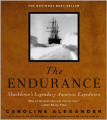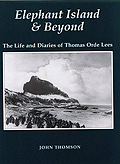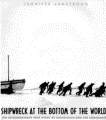Dr. James Archibald McIlroy,
1879-1968
Biographical notes
Surgeon Endurance
1914-17 - 35 at the start of the expedition
Surgeon
Quest
- Ernest Shackleton 1921 - 1922
The Endurance Expedition
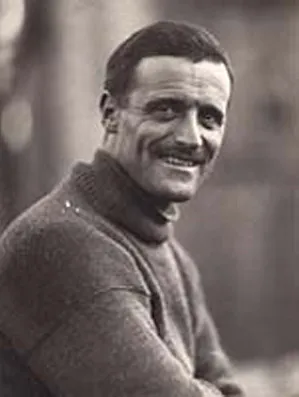
James McIlroy was a life-long ship's surgeon and life-long bachelor.
"McIlroy was suffering from malaria at the time contracted in the far east, and shook constantly through the interview with Shackleton who became suspicious and insisted that McIlroy had a medical examination. This was duly carried out by a doctor friend of McIlroys and he was declared fit. What he didn't know at the time is that he was the only applicant for the position of second doctor, and so was given the job."
Like Macklin, the first doctor, McIlroy also had the job of driving a team of sled dogs and caring for the expeditions dogs. Most surgeons and doctors on Antarctic expeditions had little of a medical nature to deal with most of the time, but once on Elephant Island, Macklin and McIlroy, had much to attend to. Rickinson had a heart condition, Blackborow had gangrene in his toes several of which were amputated (by McIlroy), Hudson was having a nervous breakdown and suffered an infected boil. There were many other cases of frostbite, dysentery, boils, sores etc. that meant that both surgeons were best left on Elephant Island rather than accompanying Shackleton to South Georgia.
McIllroy had a particular party piece which helped raise the morale of the men in that he accompanied Hussey on his banjo by providing musical imitations, including trombone and bagpipes! He was regarded as a "man of the world" by many of the other crew and would entertain them with numerous tales of past conquests.
Biography
Born in Ulster, Ireland, his parents moved to England and settled at Kings Norton, Birmingham. His father was a shop keeper (also called James McIlroy) and sent the younger James to a nearby grammar school. After school James took an office job, but soon decided this was not what he wanted to continue to do and so enrolled at Birmingham University for a medical degree. On graduation, he took up position as House Surgeon at the Queen Elizabeth Hospital, Birmingham.
Again it seems that being settled didn't suit McIlroy and so he decided to put his medical qualification to use to get around and see other parts of the world, he practised for many years in the middle and far east, in Egypt and Japan and in and around the East Indies as a medical officer or ships surgeon. In 1914, he was back in England and heard about Shackleton's expedition from a friend at his London club, Shackleton already had Macklin as one surgeon and was looking for another.
Back in England and during the First World War, McIlroy served in France and was invalided out of the army after being badly wounded at Ypres. After the war, he joined the P&O shipping line as Chief Surgeon.
Like many of the Endurance crew, he was asked again by Shackleton to join the Quest expedition, which he did originally intending only to stay as far as Madeira, though he remained with the ship and carried on South.
With Leonard Hussey, McIlroy contributed an appendix on meteorology to Frank Wild's account of the Quest expedition, "Shackleton's Last Voyage".
On return from the south he rejoined P&O until he had to retire due to his age at which point he joined another cruise company the Clan Line. As late as 1957 at the age of 78, McIlroy was still working as a ships surgeon, he never married and died at the age of 88 in Surrey on the 30th of July 1968.
In World War Two he almost lost his life when his ship, S.S. Oronsay was torpedoed and sunk off West Africa. Most of the crew were picked up quickly, but McIlroy and others drifted for five days in an open boat before being picked up and landed at Dakar, Senegal.
Just a small correction to the biography of Dr. James
McIlroy who was my great-uncle. Between the end of the First
World War and the "Quest" expedition, my great-uncle farmed
with his friend Frank Wild - Shackleton's second-in-command
- , and for a short time another Antarctic explorer by the
name of Bickerton, in British Nyasaland in the neighbourhood
of Lake Nyasa. They cleared the then virgin forest and planted
cotton. They both loved the life though suffering intermittently
from bouts of malaria. According to Frank Wild, in a letter
written in 1920 to his cousin Margaret, they "would have
been there still if Shackleton had not called for us to
come on this expedition". They had the full intention to
return to their farm in Africa after the expedition; whether
they did or not, I do not know.
Yours sincerely,
Rhona Schmitz
Thanks for your mail re Dr. James McIlroy.
I think the best thing to do is send you a
copy of the letter from Frank Wild to his cousin Margaret.
This is a copy of the part of the original letter which
was in the possession of my late aunt, Mrs. Sheila Birks.
It was sent to her many years ago by a lady named Maureen
(surname unknown), who at that time was working for the
Shackleton Society?, Antarctic Society?, and had been in
touch with my aunt for some time.
After retirement
from his post as Chief Surgeon of the P&O Line, Dr. McIlroy
went to live for some time in Aberystwyth with my aunt and
her mother, Ruby (my grandmother), Dr. McIlroy's twin sister.
As stated in his biography, life ashore was not for him,
and some time later (after giving a false date of birth)
he went to sea again with the Clan Line - a merchant shipping
company. It must have been rather boring as they used
to sit outside Mombasa for weeks on end, waiting to unload.
By the way, my aunt had to bully him to go to the Endurance
re-union (1960's?). He did not want to go at all,
but thoroughly enjoyed it once having got there.
I am almost certain that Uncle Jim only joined the P&O Line
after the Quest Expedition, but whether immediately after
or not, I do not know. It surprises me to learn that
he only intended to go as far as Madeira with the Quest:
why ever would he leave the farm in Africa just for that?
Your details about the torpedoing of the Oronsay are correct,
and subsequently he was a prisoner-of-war in Timbuktu (which
always made us laugh, as it was a funny name in those days).
Uncle Jim also sailed round the world with Prince Louis
of Battenberg, as his personal doctor. My great-aunt
Effie (his sister Euphemia), who lived with us for many
years, possessed a gold watch which had been presented to
him in remembrance by Prince Louis (who was married to a
daughter of Queen Victoria, and later anglicized his name
to Mountbatten).
As you say, he never married, but
he was a great ladies' man, and was well-known in the family
for having a "wife in every port". The portrayal of
him in the Kenneth Branagh film was very true to life -
it is exactly how I remember him to have been.
I
hope you have fun reading the enclosure, but it makes one
blush nowadays to read the colonialist's view of things.
Wild's estimates of the costs are amazing. It all
sounds like a Boys' Book of Adventure Stories: which well
sums up the life of my great-uncle.
Yours sincerely, Rhona Schmitz
References to James McIlroy by Orde-Lees in "Elephant Island and Beyond" buy USA buy UK
-
The training of dogs has commenced - soon their services will relieve us of a great deal of not unpleasant work in bringing in distant seals. Wild, Marston, Crean, Macklin, McIlroy and Hurley are the dog men: none of them has any preliminary experience to speak of, but this does not seem at all essential.
-
We are fortunate in having two doctors. McIlroy and Macklin, co-equal colleagues. They seem to take cases indiscriminately but whichever one one happens to see, that one attends one until one is better. During my recent indisposition it was Dr. McIlroy, and I must say I feel genuinely indebted to him for his unfailing and skillful attention.
He is about 35 and has had a very varied career, it seems. Having a penchant for travel he has never settled down in practice for long in any one place, having practiced in Japan, the Malay States, one or two other places and I think as a ship's doctor on more than one East India passenger steamer. He is an Irishman by birth, though on account of his dark hair and complexion, slightly Semitic in appearance as he himself laughingly asserts. He is unquestionably good looking, perhaps the handsomest amongst us (present company excepted). -
Blackborow is to be congratulated on having been able to avail himself of such skilled men as McIlroy and Macklin. McIlroy performed the operation and Macklin acted as anesthetist. All five toes on the left foot were amputated and I believe the operation was as successful as could be anticipated under such unfavourable conditions.
References to James McIlroy in Shackleton's book "South!" buy USA buy UK
- The quarters in the 'tween decks were completed by the
10th, and the men took possession of the cubicles that had
been built. The largest cubicle contained Macklin,
McIlroy, Hurley, and Hussey and it was
named "The Billabong."
- The dogs had been divided into six teams of nine dogs
each. Wild, Crean, Macklin, McIlroy, Marston,
and Hurley each had charge of a team, and were fully responsible
for the exercising, training, and feeding of their own dogs.
- Rivalries arose, as might have been expected, and on
the 15th of the month a great race, the "Antarctic Derby,"
took place. It was a notable event. The betting had been
heavy, and every man aboard the ship stood to win or lose
on the result of the contest. Some money had been staked,
but the wagers that thrilled were those involving stores
of chocolate and cigarettes. The course had been laid off
from Khyber Pass, at the eastern end of the old lead ahead
of the ship, to a point clear of the jib-boom, a distance
of about 700 yds. Five teams went out in the dim noon twilight,
with a zero temperature and an aurora flickering faintly
to the southward. The starting signal was to be given by
the flashing of a light on the meteorological station. I
was appointed starter, Worsley was judge, and James was
timekeeper. The bos'n, with a straw hat added to his usual
Antarctic attire, stood on a box near the winning-post,
and was assisted by a couple of shady characters to shout
the odds, which were displayed on a board hung around his
neck 6 to 4 on Wild, "evens" on Crean, 2 to 1 against Hurley,
6 to 1 against Macklin, and 8 to 1 against McIlroy.
Canvas handkerchiefs fluttered from an improvised grand
stand, and the pups, which had never seen such strange happenings
before, sat round and howled with excitement. The spectators
could not see far in the dim light, but they heard the shouts
of the drivers as the teams approached and greeted the victory
of the favourite with a roar of cheering that must have
sounded strange indeed to any seals or penguins that happened
to be in our neighbourhood. Wild's time was 2 min. 16 sec.,
or at the rate of 10 and a half miles per hour for the course.
- Two seals were killed to-day. Wild and McIlroy,
who went out to secure them, had rather an exciting time
on some very loose, rotten ice, three killer-whales in a
lead a few yards away poking up their ugly heads as if in
anticipation of a feast.
- The Stancomb Wills came up and McIlroy
reported that Blackborow's feet were very badly frost-bitten.
This was unfortunate, but nothing could be done. Most of
the people were frost-bitten to some extent, and it was
interesting to notice that the "oldtimers," Wild, Crean,
Hurley, and I, were all right. Apparently we were acclimatized
to ordinary Antarctic temperature, though we learned later
that we were not immune.
- We were labouring at the boats when I noticed Rickenson
turn white and stagger in the surf. I pulled him out of
reach of the water and sent him up to the stove, which had
been placed in the shelter of some rocks. McIlroy
went to him and found that his heart had been temporarily
unequal to the strain placed upon it. He was in a bad way
and needed prompt medical attention. There are some men
who will do more than their share of work and who will attempt
more than they are physically able to accomplish. Rickenson
was one of these eager souls. He was suffering, like many
other members of the Expedition, from bad salt-water boils.
Our wrists, arms, and legs were attacked. Apparently this
infliction was due to constant soaking with sea-water, the
chafing of wet clothes, and exposure.
- I called the men together, explained my plan, and asked
for volunteers. Many came forward at once. Some were not
fit enough for the work that would have to be done, and
others would not have been much use in the boat since they
were not seasoned sailors, though the experiences of recent
months entitled them to some consideration as seafaring
men. McIlroy and Macklin were both anxious
to go but realized that their duty lay on the island with
the sick men.
- On the following day Wild, Hurley, Macklin, and
McIlroy took their teams to the Stained
Berg, about seven miles west of the ship, and on their way
back got a female crab-eater, which they killed, skinned,
and left to be picked up later. They ascended to the top
of the berg, which lay in about lat. 69°S., long. 51°
W., and from an elevation of 110 ft. could see no land.
- Another fierce gale was blowing on April 22, interfering
with our preparations for the voyage. The cooker from No.
5 tent came adrift in a gust, and, although it was chased
to the water's edge, it disappeared for good. Blackborow's
feet were giving him much pain, and McIlroy
and Macklin thought it would be necessary for them to operate
soon. They were under the impression then that they had
no chloroform, but they found some subsequently in the medicine-chest
after we had left.
- "The centre of the hut is filled with the cases which
do duty for the cook's bed, the meat and blubber boxes,
and a mummified-looking object, which is Lees in his sleeping-bag.
The near end of the floor space is taken up with the stove,
with Wild and McIlroy on one side, and
Hurley and James on the other. Marston occupies a hammock
most of the night which is slung across the entrance. As
he is large and the entrance very small, he invariably gets
bumped by those passing in and out. His vocabulary at such
times is interesting.
- A census was taken, each man being asked to state just
what he would like to eat at that moment if he were allowed
to have anything that he wanted. All, with but one exception,
desired a suet pudding of some sort the "duff" beloved of
sailors. Macklin asked for many returns of scrambled eggs
on hot buttered toast. Several voted for "a prodigious Devonshire
dumpling," while Wild wished for "any old dumpling so long
as it was a large one." The craving for carbohydrates, such
as flour and sugar, and for fats was very real. Marston
had with him a small penny cookery book. From this he would
read out one recipe each night, so as to make them last.
This would be discussed very seriously, and alterations
and improvements suggested, and then they would turn into
their bags to dream of wonderful meals that they could never
reach. The following conversation was recorded in one diary:
"WILD: Do you like doughnuts?'
"McILROY: Rather!'
"WILD: Very easily made, too. I like them cold with a little jam.'
"McILROY: Not bad; but how about a huge omelette?'
"WILD: Fine!' (with a deep sigh).
Landmarks named after James McIlroy
Feature Name:
McIlroy Peak
Feature Type:
summit
Elevation: 745
Latitude:
54°11'S
Longitude: 036°46'W
Description: A peak rising to 745 m W
of Husvik Harbor and 0.8 mi S of Mount Barren, South Georgia.
Named by the UK-APC in 1990.
Other Crew of the Endurance Expedition
Bakewell,
William - Able Seaman
Blackborow,
Percy - Stowaway (later steward)
Cheetham,
Alfred - Third Officer
Clark, Robert S.
- Biologist
Crean, Thomas
- Second Officer
Green, Charles J.
- Cook
Greenstreet,
Lionel - First Officer
Holness, Ernest
- Fireman/stoker
How, Walter E.
- Able Seaman
Hudson, Hubert T.
- Navigator
Hurley, James Francis
(Frank) - Official Photographer
Hussey,
Leonard D. A. - Meteorologist
James,
Reginald W. - Physicist
Kerr, Alexander.
J. - Second Engineer
Macklin,
Dr. Alexander H. - Surgeon
Marston,
George E. - Official Artist
McCarthy, Timothy
- Able Seaman
McIlroy, Dr. James
A. - Surgeon
McLeod, Thomas
- Able Seaman
McNish, Henry
- Carpenter
Orde-Lees, Thomas
- Motor Expert and Storekeeper
Rickinson, Lewis
- First Engineer
Shackleton,
Ernest H. - Expedition Leader
Stephenson,
William - Fireman/stoker
Vincent, John
- Able Seaman
Wild, Frank
- Second in Command
Wordie, James M.
- Geologist
Worsley, Frank
- Captain
Biographical information
- I am concentrating on the Polar experiences of the men involved.
Any further information or pictures visitors may have will be gratefully received.
Please email
- Paul Ward, webmaster.
What are the chances that my ancestor was an unsung part of the Heroic Age
of Antarctic Exploration?
Ernest Shackleton Books and Video

South - Ernest Shackleton and the Endurance Expedition (1919)
original footage - Video

Shackleton
dramatization
Kenneth Branagh (2002) - Video

Shackleton's Antarctic Adventure (2001)
IMAX dramatization - Video

The Endurance - Shackleton's Legendary Expedition (2000)
PBS NOVA, dramatization with original footage - Video
Endurance : Shackleton's Incredible Voyage
Alfred Lansing (Preface) - Book
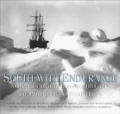
South with Endurance: Frank Hurley - official photographer
Book
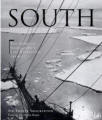
South! Ernest Shackleton Shackleton's own words
Book

Shackleton's Way: Leadership Lessons from the Great Antarctic Explorer
Book




